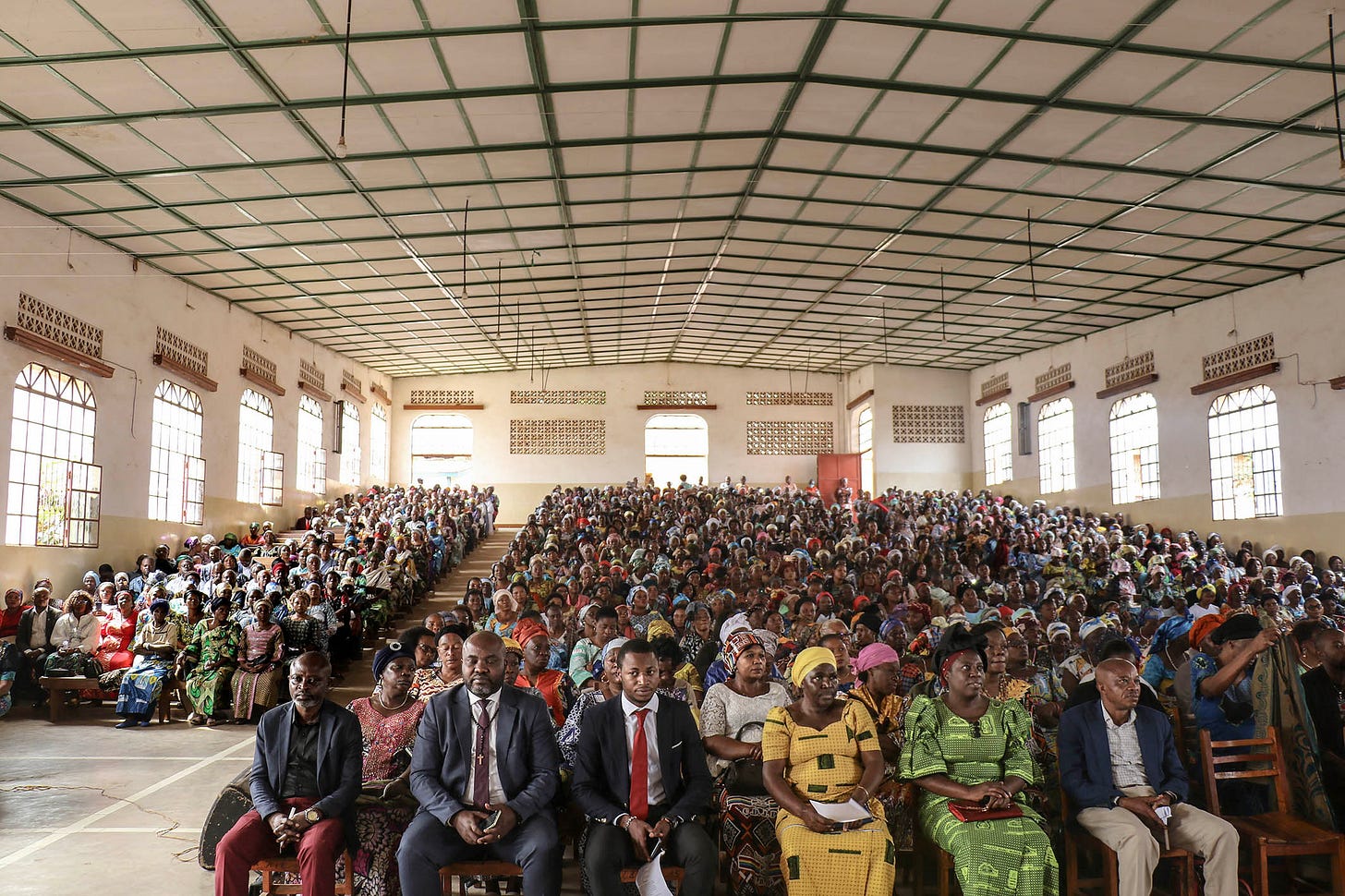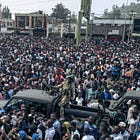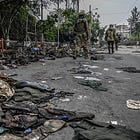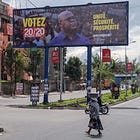Inside Bukavu
After Goma, South Kivu’s capital may be the next city to fall to advancing M23 fighters.
Ajabu Adolphe in eastern DRC

Overcoming Burundian and Congolese resistance, March 23 Movement (M23) fighters seized Nyabibwe, a mining town in South Kivu, on Wednesday, renewing panic in the provincial capital, Bukavu. The town is just 70km north of Bukavu and even nearer to the Kavumu airport, which government forces defending the area are relying on for supplies and reinforcement.
“It shows the seriousness of the situation. Nyabibwe fell last night. They are in Ihusi. It’s just a few metres from Katana, and Katana is already the city of Bukavu,” national assembly president Vital Kamerhe told Congolese legislators.
On Monday, the Rwanda-backed rebel movement had claimed it would not seize Bukavu and declared a unilateral ceasefire. Now it appears to be renewing the southward advance it began after seizing North Kivu’s capital, Goma, last week.
Should the rebels take Bukavu, they would be in control of an area that covers the entire Congolese border with Rwanda and Burundi, as well as a long stretch of the border with Uganda.
Kamerhe urged swift action from President Félix Tshisekedi’s government, which had promised a “vigorous response” when Goma was overrun.
In Bukavu, numerous Congolese police, soldiers, and pro-government militia, known as Wazalendo, had already poured into town. They tried to reassure the residents of security, but it was in vain.
In Bukavu, numerous Congolese police, soldiers, and pro-government militia, known as Wazalendo, had already poured into town. They tried to reassure the residents of security, but it was in vain. “The authorities keep saying that everything is under control, whereas we are losing territory,” said a Congolese civil society worker, who spoke to The Continent on Wednesday via phone from South Kivu.
Instead, the people braced for the fall of their city. Several Bukavu residents who spoke to The Continent said they were scared to death and described a city going under lockdown as many people fled.
“The situation is tense: the authorities are telling us to stay calm. We’ve learned that the rebels are advancing towards Kavumu airport, a place not far from our town of Bukavu,” said Abigaelle Sabiti. Sabiti said she had seen many United Nations workers leave Bukavu, as well as staff of international NGOs.
Even local people were trying to leave, but that option was quickly closing. The local migration office had reportedly run out of travel permits for people seeking to go to Rwanda and Burundi.
“More people than usual have bought them to travel,” Sabiti said.
Another resident, Jonathan Uwezo, told The Continent: “Some people are rushing out to buy food because of the uncertainty. Others are even starting to buy solar kits. We followed what happened in Goma, with load-shedding and soaring food prices.”
The flow of new goods into the city had been blocked when M23 occupied Goma and suspended travel on Lake Kivu. The South Kivu provincial government also suspended lake traffic shortly thereafter.
Bukavu is about 200km south of Goma, but the roads between the cities are often impassable. Most travellers going between the two cities use the lake route. With panic buying and no new stock, inflation is likely.
Those people who were not trying to leave took other precautions. Shop doors were being barricaded and reinforced as traders braced for looting. Bar patrons were staying away, preferring to drink at home.
In a related development, Rwanda is no longer strenuously denying allegations that it is supporting the M23’s takeover of parts of the Democratic Republic of Congo (DRC) territory.
Asked by CNN’s Larry Madowo on Monday if there were Rwandan troops in the DRC, President Paul Kagame said, “I don’t know”, and went on to claim that there are good reasons why Rwanda would be invested in the eastern DRC.
M23 leaders claim their rebellion was triggered by anti-Tutsi sentiments and violence that has targeted Congolese Kinyarwanda speakers. Bracing for takeover, people in Bukavu are already carefully choosing what they say about the “unusual situation” in which they find themselves.
“We can’t express ourselves the way we used to,” said 35-year old Ansima Ange. “I have the impression that our freedom has been somewhat compromised. But I believe it will work out one day. Let the parties involved in the conflict give priority to a peaceful resolution. We don’t want our blood to spill.”






